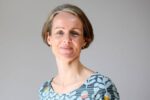Chew, S., Armstrong, N. and Martin, G. (2022) Understanding knowledge brokerage and its transformative potential: a Bourdieusian perspective, Evidence & Policy, vol 18, no 1, 25–42. https://doi.org/10.1332/174426421X16149632470114
Understanding knowledge brokerage and its transformative potential: a Bourdieusian perspective
Why it matters
One problem identified in healthcare is the length of time between important new findings emerging in healthcare research and clinicians using them in practice. This delay is in part because, historically, researchers and practitioners have tended to work in isolation from each other.
Knowledge brokers have been suggested as a potential solution to the problem. Their role in a healthcare setting is to provide a link between the producers of knowledge (healthcare researchers) and its users (healthcare providers and clinicians) which can help move knowledge across traditional boundaries by enabling new relationships and offering people better ways of working together. But how well does this role work?
Brokering knowledge has been a part of many professional roles for a long time, but it’s starting to gain acceptance as a specialist role. Brokers’ independence is thought to be an advantage, giving them the ability to sit between different institutions and bring experts on either side of a boundary together. Although knowledge brokering is becoming more popular, there isn’t a great deal of evidence that shows how effective it might be.
Our approach
We looked at seven newly created knowledge brokerage roles over four years to see how they worked. We looked at how the roles played out in a collaboration between health researchers in a university and NHS organisations. The brokers were asked to help with the task of “transforming the fields of healthcare research and practice to bring the two together and align them in mutually agreed and beneficial programmes of knowledge generation and translation.”
We used multiple techniques to collect data, including shadowing brokers and observing meetings. We also hosted two focus groups.
We used the work of Pierre Bourdieu to inform our analysis. Bourdieu suggests that individuals and their resources (or capital), including cultural (types of knowledge, qualifications and credentials they have) and social (contacts and trust) influence the ways they work and their status in different fields (research or practice).
What we found
Bourdieu’s theoretical framework helped shed light on the way the cultures and structures of the fields of research and practice limited the knowledge brokers’ capacity to help make changes. In both fields, brokers didn’t seem to have the networks of contacts and markers of esteem (what Bourdieu would call social and cultural capital) that might have enabled them to bridge the gap between the two. Rather than being able to work across boundaries and bring the fields closer together, brokers felt marginalised – their independence worked to their disadvantage.
The brokers’ job descriptions were all-encompassing but unfocused, leaving them unclear about their priorities, what they were expected to achieve, or how. This reflected a lack of detailed thinking on precisely how brokers would contribute to the intended transformation.
Our findings show that when establishing knowledge brokering roles, the dominant value systems operating in each field should be carefully considered. The position of brokers between fields is important, but at the same time, their distance from both may make their influence in those fields limited, and so it’s also important that knowledge brokers have enough social and cultural capital to give them the legitimacy and power to bring about change. If they don’t have the resources and relationships to work across fields, knowledge brokers may ultimately end up aligning with only one of the fields.
We suggest that a tightly focused set of activities, premised on a clear theory of change that accounts for the structure and rules applicable in each field, is essential if knowledge brokerage’s transformational potential is to have any chance of success.

